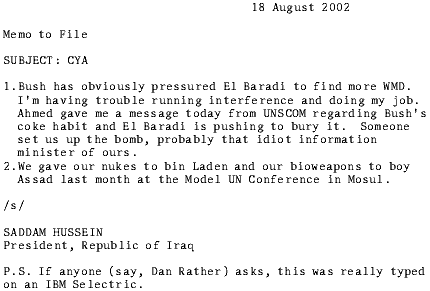As Steven Taylor at PoliBlog notes, the Associated Press has decided to stop allowing the Bowl Championship Series from using its poll to determine the national title matchup. Ivan Maisel at ESPN.com has additional details that shed some light on the AP’s decision:
By pulling out of the formula, the AP has come full circle. In 1998, a sufficient number of AP members didn’t want their college football writers to be responsible for voting teams into the national championship game that the Division I-A commissioners developed the Bowl Championship Series formula to determine the standings used to pick teams for the BCS games.
AP members, worried about making the news instead of reporting it, felt better that their poll was only indirectly responsible for which teams received the eight-figure payout (this season: $14.4 million). ...
An AP voter in Alabama, Paul Gattis of the Huntsville Times, was chastised for voting Auburn No. 3 by the editor of his paper—in print. Three AP voters in Texas drew attention when they moved Texas ahead of California in the final poll, helping the Longhorns qualify for a BCS berth in the Rose Bowl instead of the Golden Bears.
This AP report gives the AP spin on the decision:
“By stating that the AP poll is one of the three components used by BCS to establish its rankings, BCS conveys the impression that AP condones or otherwise participates in the BCS system,” the letter [from the AP to the BCS] said. “Furthermore, to the extent that the public does not fully understand the relationship between BCS and AP, any animosity toward BCS may get transferred to AP. And to the extent that the public has equated or comes to equate the AP poll with the BCS rankings, the independent reputation of the AP poll is lost.”
On the other hand, the weak-mindedness that gave Tom Osborne and Nebraska a split national title from the coaches a few years back seems to have spread to the writers in the person of Neal McCready of the Mobile Register (þ: Big XII Fanblog), too:
I’m used to [my ballot] being publicized and scrutinized. In the past week, after the Austin American-Statesman published every ballot, I received hundreds of e-mails from irate Texas fans upset that I had the Longhorns No. 9 on my last week’s ballot. When they say “Don’t mess with Texas,” they mean it. Most of the e-mails received from the Texas faithful were profanity-laced and less than a stellar reflection on a university and its fan base. For the record, I’m not gay or Communist. I don’t live in a trailer and I still have all my teeth. Those that were diplomatic presented a strong case and after studying the numbers, I agree. I had Texas too low. I fixed it today, moving the Longhorns to No. 5. Please leave me alone now; you’re scaring my wife.
McCready previously had Texas (whose sole loss was to undefeated Oklahoma) ranked behind Louisville, whose only claim to fame was a close loss to 8–3 Miami in an otherwise weak schedule. Mack Brown lobbying or no Mack Brown lobbying, McCready clearly wasn’t paying attention to what he was doing.
Now, if only the Associated Press would go one step further and acknowledge that the act of producing a poll in and of itself undermines the independence of the AP from the sport it is covering, I might be able to respect this decision. But the AP’s choice to distance itself from a controversial system without also taking stock of the reality that the AP’s football and basketball polls are key determinants of the attention given to, and thus the profitability of, all college “revenue” sports—not just the BCS championship game, but also regular-season matchups and, via the NCAA selection committees, the men’s and women’s basketball tournaments—smacks of hypocrisy.
Ivan Maisel has more today on what the BCS does next in the wake of the AP’s decision.
This is my entry in today’s OTB Traffic Jam.
![Welcome to Signifying Nothing [Signifying Nothing]](/local/memlogo-1.png)



